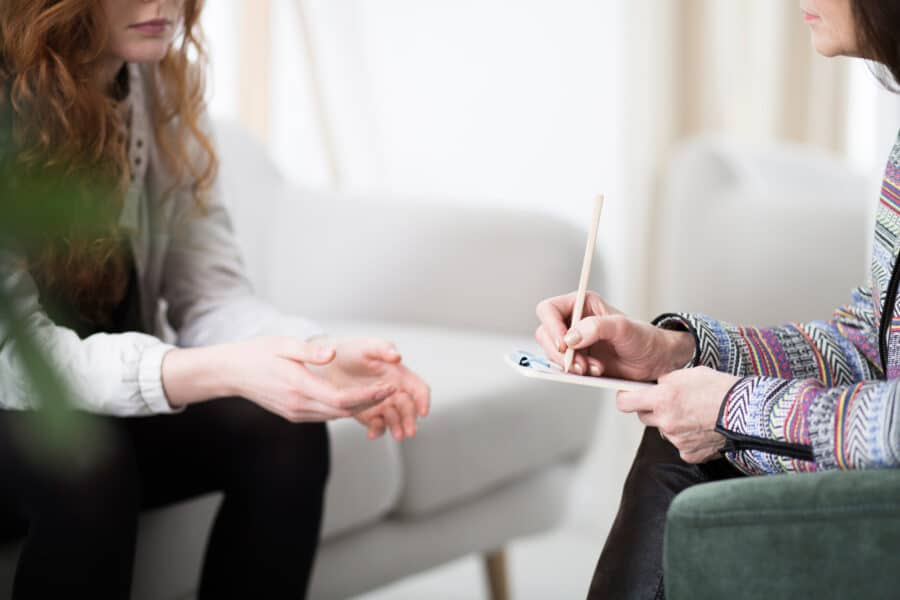
2024-01-05 18:56:38
The Science of Luxury Rehab: Cutting-Edge Treatments and Technologies Transforming Recovery
Addiction recovery is a complex journey that requires multifaceted support. While traditional methods like therapy and medication have established their effectiveness, luxury rehab centers are pushing the boundaries by incorporating cutting-edge technologies and treatment methods into their programs. These advancements bring a wave of hope and personalized approaches to recovery, paving the way for a future where science meets self-discovery.
Let’s delve into the world of science-driven luxury rehab and explore some of the groundbreaking treatments and technologies revolutionizing the approach to addiction:
1. Neurofeedback: Rewiring the Brain for Resilience
Imagine training your brain to resist cravings and manage stress like a seasoned athlete trains their muscles. That’s the promise of neurofeedback, a non-invasive brain-computer interface technology used in some luxury rehab centers. During neurofeedback sessions, individuals wear sensors that detect brainwave activity in real-time. These sensors feed brainwave data back to the individual through visual or auditory cues, allowing them to learn how to self-regulate their brain activity.
Studies have shown that neurofeedback can effectively reduce addictive behaviors and cravings, improve emotional regulation, and enhance cognitive function. In a study published in the Journal of Addiction Medicine, researchers found that neurofeedback therapy, along with cognitive-behavioral therapy, significantly reduced cocaine use in individuals battling cocaine dependence compared to those receiving placebo therapy.
2. Transcranial Magnetic Stimulation (TMS): Targeting the Root of Addiction
Transcranial magnetic stimulation (TMS) is a non-invasive therapy that uses electromagnetic pulses to stimulate specific areas of the brain. In the context of addiction treatment, TMS targets brain regions associated with cravings, decision-making, and reward processing. By modulating the activity in these areas, TMS can help individuals break the cycle of addiction and reduce drug-seeking behaviors.
Research on TMS for addiction treatment is still ongoing, but preliminary results are promising. A study published in JAMA Psychiatry found that TMS combined with cognitive-behavioral therapy significantly reduced cocaine use and craving in individuals with cocaine dependence compared to those receiving a sham TMS procedure.
3. Genetic Testing: Tailoring Treatment to Individual Risks
Addiction is not a one-size-fits-all condition. Individual genetic makeup can play a significant role in vulnerability to addiction and response to treatment. Luxury rehab centers are increasingly incorporating genetic testing into their programs to personalize treatment plans and optimize recovery outcomes.
Genetic testing can identify specific gene variants associated with an increased risk for addiction to certain substances. This information can help healthcare professionals tailor treatment approaches and medications to target individual needs and minimize potential side effects. For example, genetic testing may reveal a genetic predisposition to opioid dependence, prompting the consideration of non-opioid medication options for pain management during treatment.
4. Virtual Reality Therapy: Facing Triggers in a Safe Space
Virtual reality (VR) technology is not just for gaming anymore. In the world of addiction treatment, VR is emerging as a powerful tool for exposure therapy. Virtual reality simulations can recreate environments and situations that trigger cravings or addictive behaviors, allowing individuals to practice coping mechanisms and build resilience in a safe, controlled setting.
For example, individuals struggling with alcohol dependence can be exposed to virtual simulations of bars and social gatherings without the risk of relapse. This controlled exposure allows them to learn how to manage triggers and cravings in real-world scenarios without facing the immediate consequences of a slip. Studies have shown that VR exposure therapy can effectively reduce alcohol consumption and cue-induced cravings in individuals with alcohol use disorder.
5. Biofeedback: Enhancing Self-Awareness through Bodily Response
Biofeedback is a technique that uses real-time feedback on physiological responses to help individuals learn to control them. During biofeedback sessions, individuals are monitored for physiological changes such as heart rate, skin conductance, and muscle tension. These changes are then translated into visual or auditory signals that provide feedback on their emotional state.
By learning to recognize and regulate their physiological responses, individuals can develop coping mechanisms for managing stress, anxiety, and cravings, which are often triggers for addictive behaviors. Biofeedback has been shown to be effective in reducing stress, anxiety, and pain, all of which can contribute to substance abuse.
The integration of these cutting-edge technologies and treatments into luxury rehab programs represents a significant shift in the landscape of addiction recovery. By harnessing the power of science and innovation, these centers offer a personalized and evidence-based approach that empowers individuals to rewrite their narrative and reclaim their lives. While more research is needed to fully understand the long-term efficacy of these emerging technologies, their potential to revolutionize addiction treatment is undeniable.
Remember, the path to recovery is unique for each individual.
Share:
We Accept Most Major Insurance

Have a Questions?
Drop us a line!
Learn more about the treatments and programs we offer, about our staff and the neighborhood.















